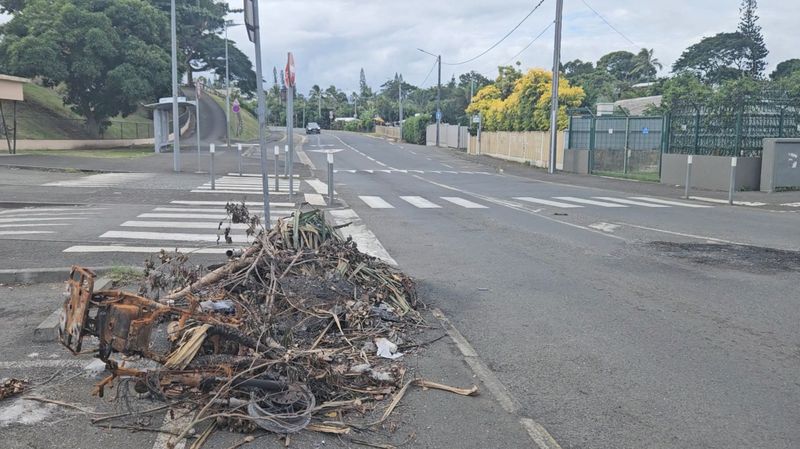By Guus Trompiz
PARIS (Reuters) – A wave of civil unrest in New Caledonia, a French overseas territory in the South Pacific that is a leading nickel producer, has halted mining operations and supported a rise in prices for the metal.
This is why New Caledonia’s nickel industry matters politically and in global markets.
HOW BIG IS NEW CALEDONIA’S NICKEL SECTOR AND WHO CONTROLS IT?
New Caledonia has the world’s fifth largest reserves of nickel, a metal used mainly in stainless steel and increasingly for electric vehicle batteries, and ranked third globally in nickel mined in 2023.
The archipelago’s nickel mining industry dates back to the 19th century, when the area and its indigenous Kanak people were colonized by France.
New Caledonia’s three main nickel companies are Koniambo Nickel SAS (KNS), Prony Resources New Caledonia (PRNC) and Societe Le Nickel (SLN). Each supplies its own processing plant. Together they provide around 13,000 direct and indirect jobs, according to the authorities.
KNS is owned by the Northern Province of New Caledonia and global miner and trader Glencore (OTC:), PRNC has several shareholders including commodities trader Trafigura, while SLN – New Caledonia’s historic nickel producer – is majority owned by the French mining group Eramet.
WHAT IMPACT IS THE UNREST HAVING ON THE NICKEL INDUSTRY?
Most mines have stopped operating, while SLN has reported fire damage to a conveyor belt in one mine. SLN has also reduced production at its processing plant to minimum capacity.
The unrest supported a rally in nickel prices on the London Metal Exchange to a nine-month high before prices fell back. Reduced production in New Caledonia could erode a global surplus. [MET/L]
New Caledonian production was below full capacity before the riots and analysts expect prices to be capped in the longer term due to continued growth in Indonesian supply.
The KNS mine and processing plant have been idle since February and ongoing disruption to SLN’s mines has limited its capacity.
WHY IS NEW CALEDONIA’S NICKEL SECTOR Struggling?
The three miners have lost money almost continuously for the past decade. They have relied on financial support from private shareholders and the French state, with the latter providing 700 million euros ($759 million) between 2016 and 2023.
High energy and labor costs in the remote area have haunted miners, while technical setbacks have also hurt production.
New Caledonia faces fierce competition from cheaper suppliers. Indonesia has quickly become a nickel powerhouse, accounting for more than half of the world’s nickel mines by 2023.
Political tensions in New Caledonia have shaped the industry. The pro-independence province in the north opposes the export of unrefined nickel ore and has long-running licensing disputes with SLN, which wants to expand ore shipments.
The sector was on the brink of collapse last year as global prices plunged and after both Eramet and Glencore said they would no longer inject money.
The French government has negotiated a rescue package, including a commitment to supply metal to the European battery supply chain. But the talks have stalled due to deteriorating relations between pro-independence parties and loyalist parties.
The proposals include hundreds of millions of euros in government loans and energy subsidies, along with a renewal of mining permits, exports and energy infrastructure.
WILL THE SECTOR FIND NEW INVESTORS?
Glencore and Prony are both trying to sell their shares in their respective companies.
Even before the unrest, analysts saw headwinds.
“It is difficult to give names to potential investors,” says Nikhil Shah of consultancy CRU. Concerns about supply chain dependence on Indonesia could help sustain interest in New Caledonian nickel, he added.
The KNS plant has been plagued by technical problems, but if these are resolved it could create an efficient mine and port, says mining consultant Didier Julienne.
Glencore has shut down its KNS plant for six months while it looks for a buyer for its 49% stake.
KNS told Reuters by email that a possible extension of the period is being investigated, but that this has nothing to do with the unrest. Glencore said in an emailed statement: “The sale process remains ongoing. We have no plans to extend it.”
PRNC told Reuters in April that it was seeking a core investor to acquire a 74% stake by buying out shareholders including Trafigura. The group was relaunched in 2021 when Brazil’s Vale sold the company. A contract with Tesla (NASDAQ:) heralded a focus on EV batteries.

Eramet has said the SLN will provide continued operational support following a debt conversion deal with Paris. A spokesperson said there were no discussions to sell SLN.
($1 = 0.9223 euros)





















